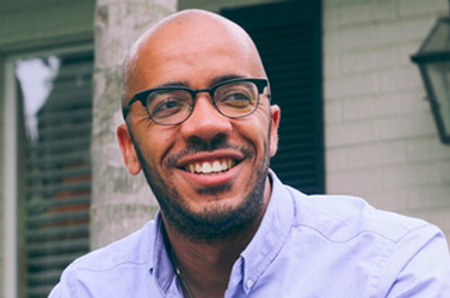AMP’s Contemporary and Cultural Issues Committee brought Clint Smith III, a spoken word performance artist and doctoral candidate at Harvard University, to the College of William and Mary Saturday. Smith, a 2014 National Poetry Slam champion and high school teacher, performed his pieces in Lodge One to a crowded room. Earlier in the day, Smith was one of the keynote speakers at the Office of Community Engagement’s Active Citizen Conference. Smith’s poems focused on a wide range of topics, including his students, history, race and his experiences in academia.
Many of Smith’s poems focused on his work as a teacher, touching on how the problems his students faced were representative of larger issues of race, immigration and poverty on the national level. His poem, “Place Matters,” emphasized the problem of food deserts for children in urban areas far from grocery stores.
“So tell me that place doesn’t matter—that the neighborhoods that are predominantly healthy aren’t the ones that are predominantly wealthy,” Smith said in “Place Matters.” “When you’re not choosing between buying your medicine or your groceries health doesn’t have to be a luxury.”
Students responded well to Smith’s poems. Some said that his words made them think differently about certain issues.
“The performance by Clint Smith ‘Place Matters’ was both greatly emotional and eye-opening,” David Kilpatrick ’16 said. “I was not even aware of the issue and growing concern of food deserts. The analogy that DC kids have been going through an unrewarded war of daily struggles for health and safety to the warriors of ancient Egypt truly moved me. I never thought of it in that way before, and I don’t know why not. The cruel fact that a child’s neighborhood can define his or her health and future is terrifying and a serious issue that clearly needs more attention.”
In addition, Smith reflected on being on the same campus that U.S. presidents Thomas Jefferson and James Monroe once inhabited. Smith addressed one of his poems to the pair—and other presidents. The poem, entitled “Letter to five of the presidents who owned slaves while they were in office,” questioned the slave-owning history of George Washington, Thomas Jefferson, James Madison, James Monroe and Andrew Jackson.
“When you told Sally Hemmings that you would free her children if she remained your mistress, did you think there was honor in your ultimatum?” Smith said. “Did you think that we wouldn’t be able to recognize the assault in your signature? Does raping your slave when you disguise it in bribery make it less of a crime? When you wrote the Declaration of Independence did you ever intend for black people to have freedom over their bodies?”
Smith closed the poem with a reflection on how history class usually skims over certain parts of the presidents’ lives.
“My entire life I was taught how great this country was, but no one ever told me about the pages torn out of our textbooks,” Smith said. “Oppression doesn’t disappear just because you didn’t teach us that chapter. If you only learn one side of a story, at some point you have to question who the writer is.”
The audience was receptive to Smith’s critiques of Jefferson and Monroe, snapping when he mentioned the College’s two alumni.
“He made his poetry incredibly accessible to all people,” Callie Cabral ’17 said. “I know going into it that I thought it was going to be about race and social justice—and that’s what drew me to it—but it ended up incorporating ideas about being just a better person in general and I liked that.”





























